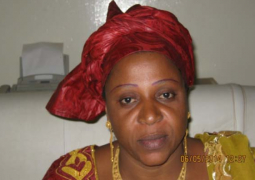In just 50 days’ time, Gambians will go to the polls to decide who will steer the affairs of this country for another five years.
While we do not yet know who will that be, what is known at the moment is that all would-be candidates in the election are exerting themselves so as to be the Gambia’s first citizen.
We only hope and pray that the wisest and most conscientious administrator carries the day for the ultimate benefit of the people of this great beautiful country.
Ahead of the polls slated for 24th November, we urge all the would-be presidential candidates and their supporters to stick by decorum and fair play!
The
Despite the heterogeneous composition of the Gambian society, there is peace here, which makes it the envy of the region.
It is this culture of peace that we want to see nurtured with vigilance, so that The Gambia could be turned into the
Having different ideologies should never make us enemies.
One requirement of true and lasting peace though, is dependent on our political leaders being committed to social justice, as well as economic justice.
Where there is neither, discontent becomes prevalent, and it can find expression in many and various tragic ways, as we have seen in some parts of the continent.
There should also be political tolerance.
If The Gambia belongs to all of us, as many would say, then the views of the opposition parties should be taken into account in managing the affairs of the country.
When the opposition parties are consulted on matters of national importance, they will feel a sense of belonging that would impact positively on our politics and national development endeavours.
As we also said earlier, being in opposition is not a licence to run down a ruling party or government.
In a real democracy, an opposition political party is just the flip side of the governing party.
Each has a manifesto, spelling out its beliefs and intentions for a country, and each should have a good chance to sell its manifesto to the electorate.
Thus the importance of providing a level playing field, since it is on the basis of such manifesto that the electorate decide which party to entrust with the management of the affairs of state.
When the manifesto of a political party is deemed to address the needs and aspirations of the people, that party should carry the day.
“One gives nothing so generously as advice.”
Rochefoucauld La
Read Other Articles In Article (Archive)



